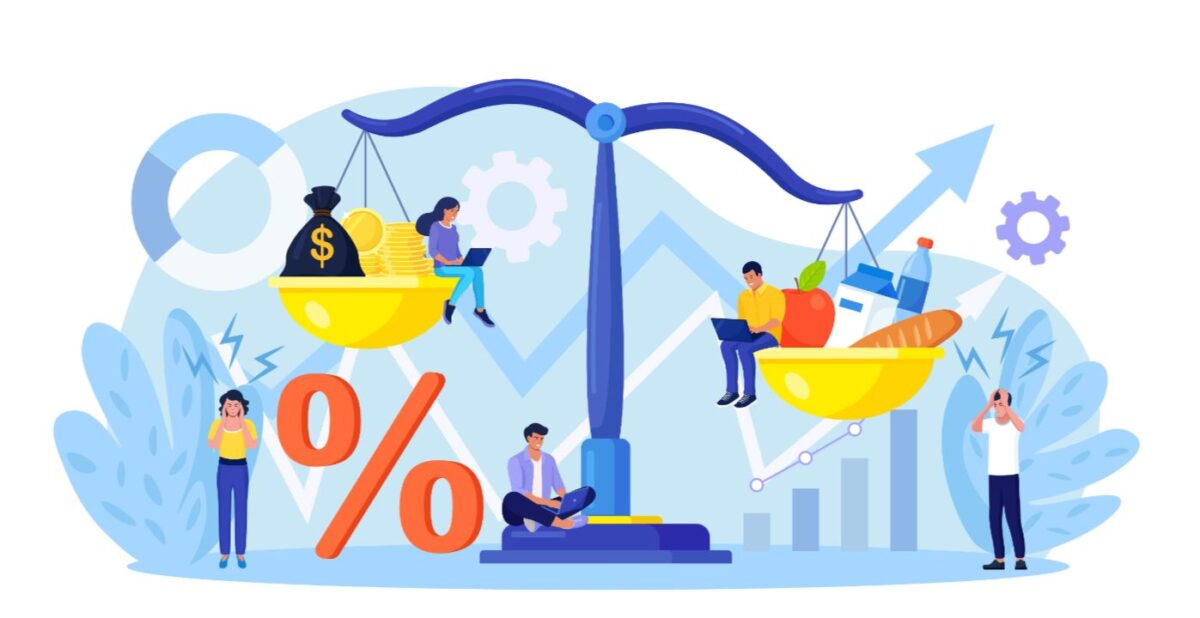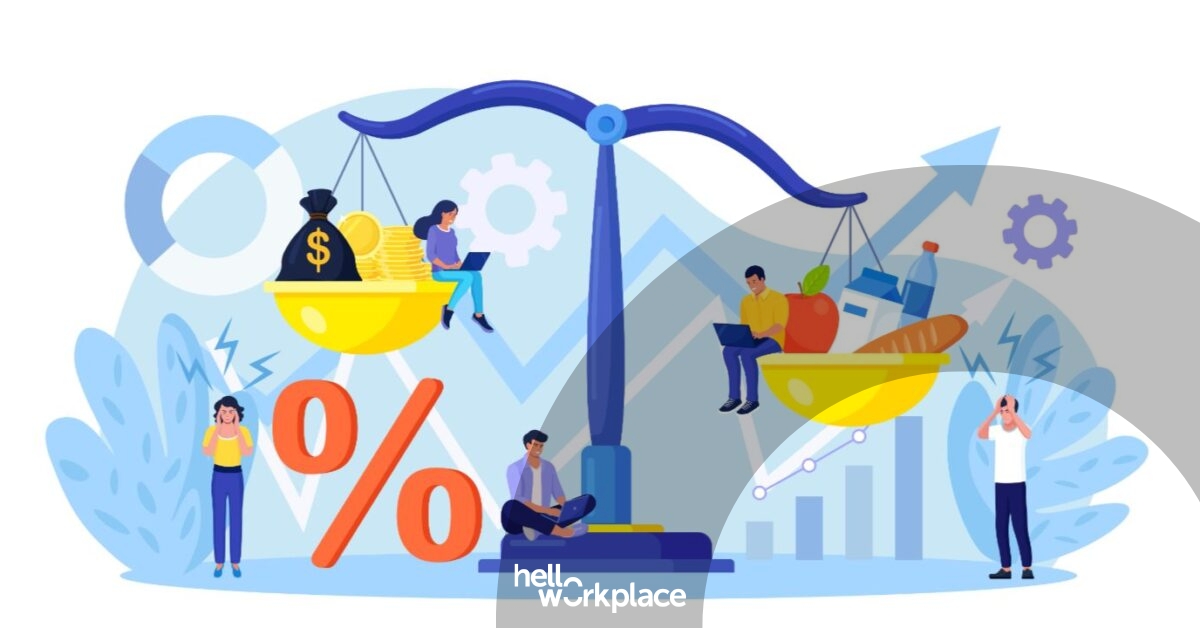par Maite Hellio
Published on September 23, 2022 at 9:36 am
–
Share the article
Value-sharing bonus, profit-sharing integration, increase in the employer’s share of the mutual fund… What tools do you have to help your employees cope with the rising cost of living?
–

In August, inflation hit 5.9% in one year in France. In this new school year, food and energy prices remain high, due to the combined effect of the post-Covid recovery and the conflict in Ukraine.
While unions and politicians constantly remind us that companies can play a major role in helping their employees meet their expenses, most employers are reluctant to raise wages.
Because the evolution of the economic situation is uncertain, as Eric Heyer, director of the analysis and forecasting department of the OFCE (French Observatory of Economic Conditions) explains to franceinfo: “If price levels go back to what we were seeing before the crisis and you raise wages, you will suffer a giant loss of margins. Since we are not sure what will happen next, the safest thing to do is to say: ‘Let’s temporarily increase the income and, if necessary, raise the salaries’. “
So what other leeway do companies have to give their employees a boost?
Temporary measures
To limit the decline in French purchasing power, the government passed two laws during the summer: the one to protect purchasing power and the amending financial law for 2022. These texts propose a number of measures dedicated to businesses.
- The early release employee savings: Employees can release in advance the savings accumulated in connection with profit sharing or profit sharing before 1is January 2022. They have until 31 December 2022 to do so, within the limit of 10,000 euros, at once, for the purchase of goods or services. The free payments made by the employee, the sums invested in solidarity companies, those invested in securities of their own company or associated companies (except for the contrary collective agreement), those invested in blocked current accounts (with the exception of cooperative production companies) are excluded from the device. and entities) as well as those invested in the collective pension plan (Perco) and in the collective company PER.
- The new rules for the use of restaurant tickets: These titles can now be used for any food product, edible or not, until December 31, 2023.
- Greater coverage of home-work travel expenses: under the new provisions, applicable for 2022 and 2023, the mandatory payment of 50% of the price of the public transport season ticket may be subject to an additional exemption up to a limit of 25% of the season ticket price. In these two years, this coverage can be combined with a transport bonus, intended for employees who use their personal vehicle to travel from home to work. The latter can now be paid unconditionally.
- Buying RTT tax free: your employees can give up all or part of the days or half days of rest acquired, for the periods from 1 January 2022 to 31 December 2025. These days or half days worked are increased by an amount “at least equal to the rate of increase for the first overtime hour applicable to the company”or 25% in the absence of agreement.
Sustainable solutions
- Also resulting from the legislation protecting purchasing power, the value sharing premium (PPV) records the former exceptional bonus for purchasing power in the duration. All employees are admitted, even if the tax exemption concerns only those who receive up to 3 Smic. The cap was raised from € 1,000 to € 3,000 and from € 2,000 to € 6,000 in companies with fewer than 50 employees and in those benefiting from a profit-sharing or profit-sharing agreement. “We find that, unlike the early release of employee savings, which primarily affects large corporations, the value-sharing bonus affects all business sizes and industries.”notes David Guillouet, associate attorney with Voltaire Avocats.
- Some companies have opted for the reopening of the NAOs (annual mandatory negotiations), as David Guillouet noted: “These negotiations normally take place once a year, generally in the first quarter of the year with retroactive application to 1is January of the current year. Under pressure from trade unions, companies reopened their NAO 2022. Others anticipated NAO 2023 to keep the social climate under good auspices. “
- Businesses also rely on the revision of teleworking contracts to allow its employees to save fuel, guaranteeing more days of remote work. “Some agreements even provide for indexing the number of telework days per week to the price of fuel.explains Louise Peugny, associate attorney with Voltaire Avocats. In this phase, however, there is no increase in the teleworking bonus. “
- The profit sharing and profit sharing surcharge: “If, for the moment, this device is little used, because it is less attractive than the value sharing bonus, some companies choose to mix the two devices because they fear that the PPV alone creates a sense of habit among the collaborators”explains Louise Peugny.
- The increase in the employer’s share of the mortgage it is also one of the solutions adopted.
- Finally, the company can also choose to increase employer participation on restaurant tickets.
–
–
–


